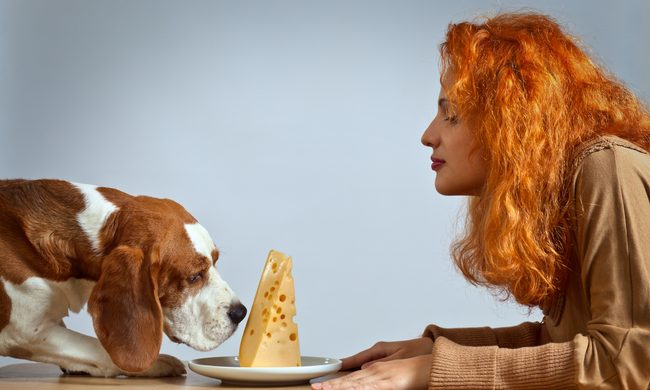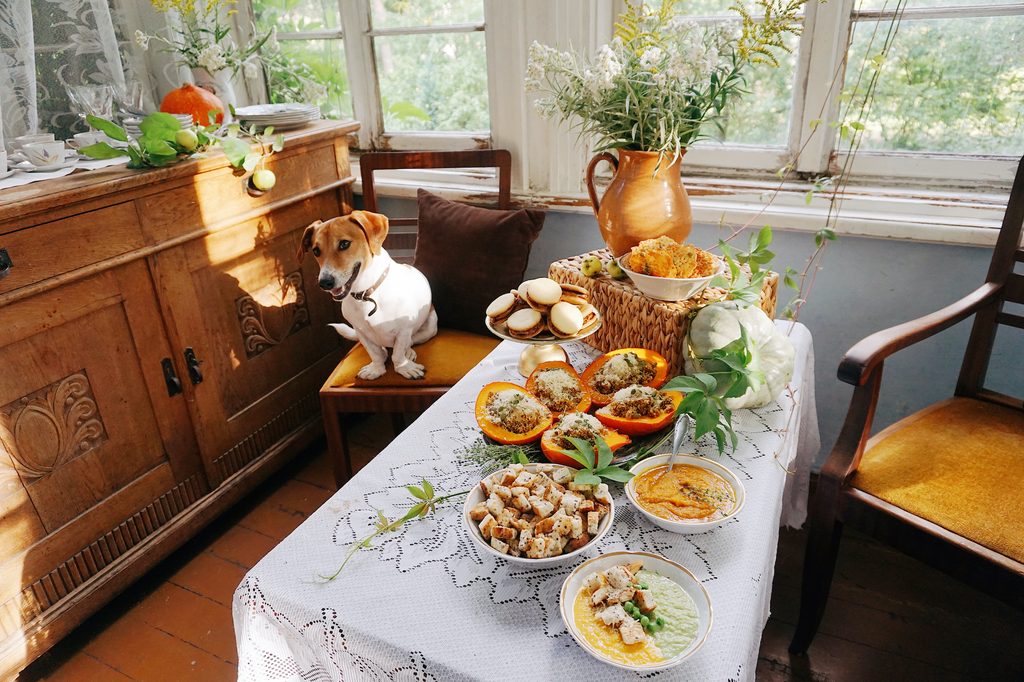
We get it, pet parents — it can be hard to resist your fur baby’s begging. With those big, sweet eyes and their heart-melting tricks, how could you not share table scraps with your dog? What’s even trickier, though, is knowing which foods are safe to eat with your dog.
Luckily, there are many people foods that are safe — and even healthy — for dogs to snack on. From meats to produce and even dairy, there’s more variety than you may think. These human foods for dogs are easy to find at any grocery store too, so you won’t have to work incredibly hard to keep your pup happy and his tummy full. Maybe you can even share off your plate!
Here are 10 safe human foods for dogs:
1. Cooked chicken, turkey, and beef
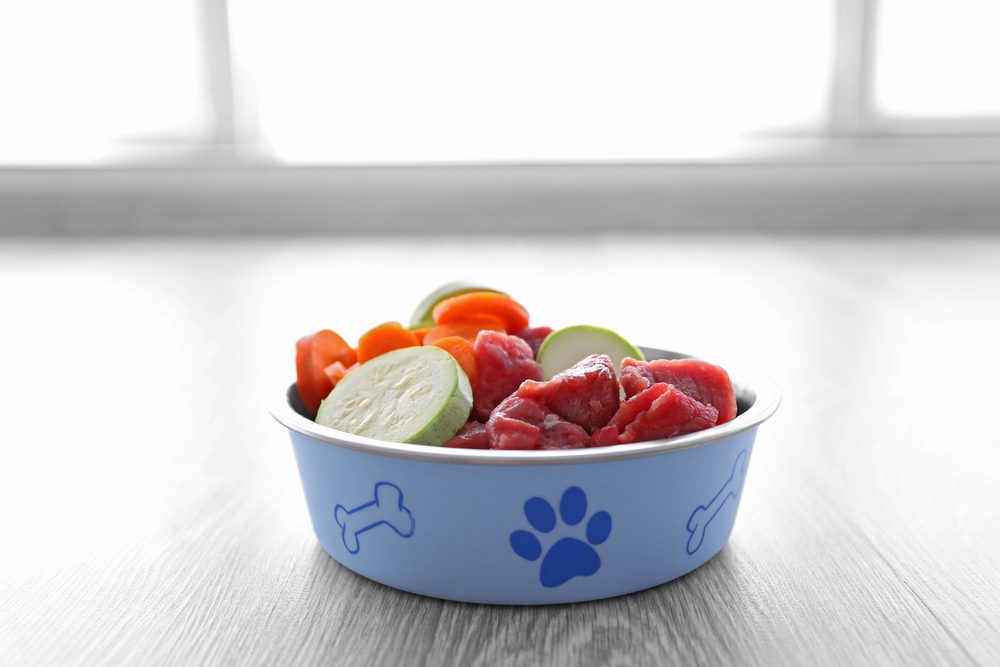
It’s no mystery that dogs love meat — they’re mostly carnivores, after all — but which meats are safe to feed to your pup? Chicken, beef, and turkey are three popular types of meat for dogs, both in store-bought kibble and homemade dog foods, according to Petco.
In fact, you may be able to share some directly from the table—it all depends on how you prepare it. Make sure any chicken you give to your dog has no spices or seasonings, as many of these ingredients aren’t safe for our canine friends.
2. Oatmeal
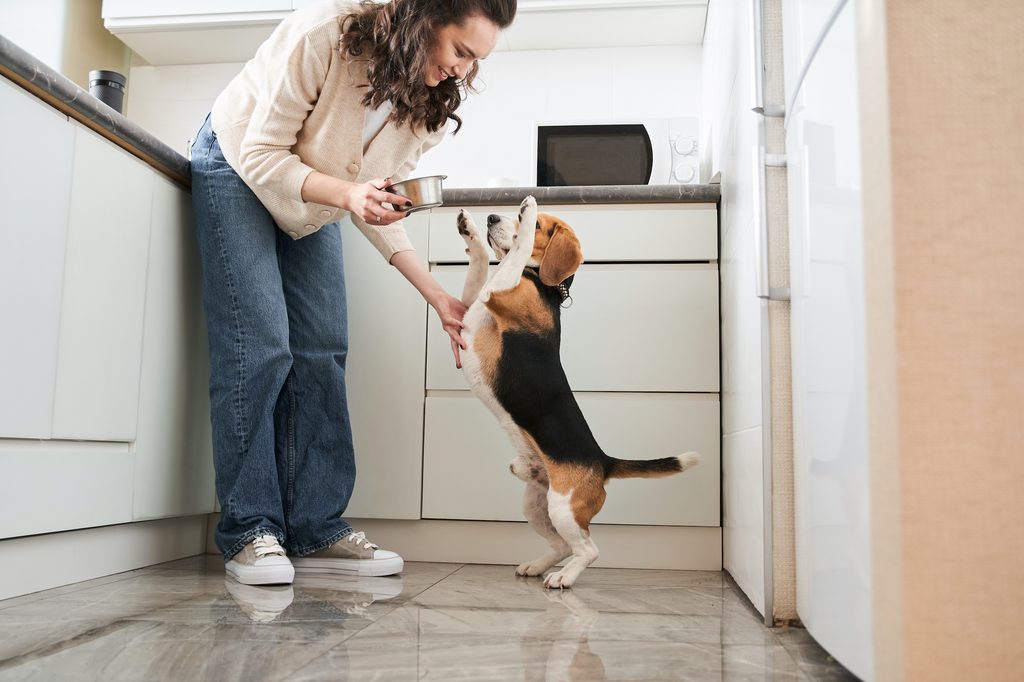
For dogs who may be allergic to wheat or in need or more soluble fiber in their diet, oatmeal can be both a healthy and delicious option. This food is best served to your pup cooked and plain, or with a small amount of veterinarian-approved toppings (like berries) to help your four-legged friend avoid unnecessary intestinal discomfort, according to the American Kennel Club. No flavored oatmeal, please!
3. Lettuce
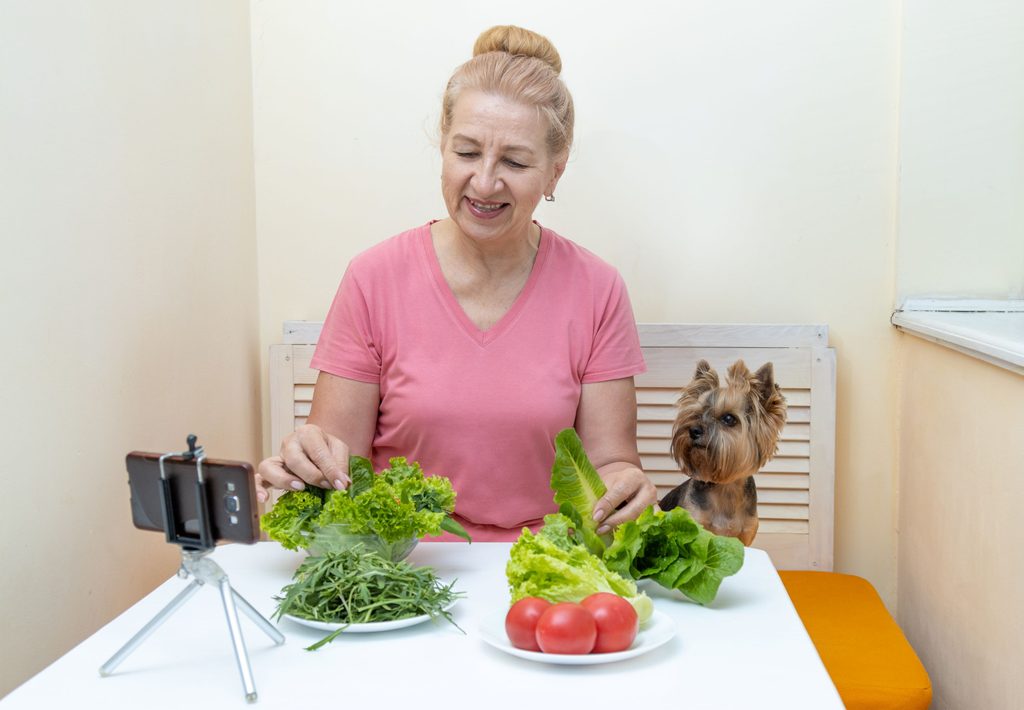
These leafy greens may be mostly water, but they still have a refreshing crunch that many canines enjoy. If you’d like to share these veggies with your pup, keep in mind that they can cause diarrhea in large amounts. Thanks, fiber. However, the American Kennel Club notes you’d have to feed your dog quite a bit to reach this point. On the plus side, lettuce can be a great training treat!
4. Some types of berries and fruits
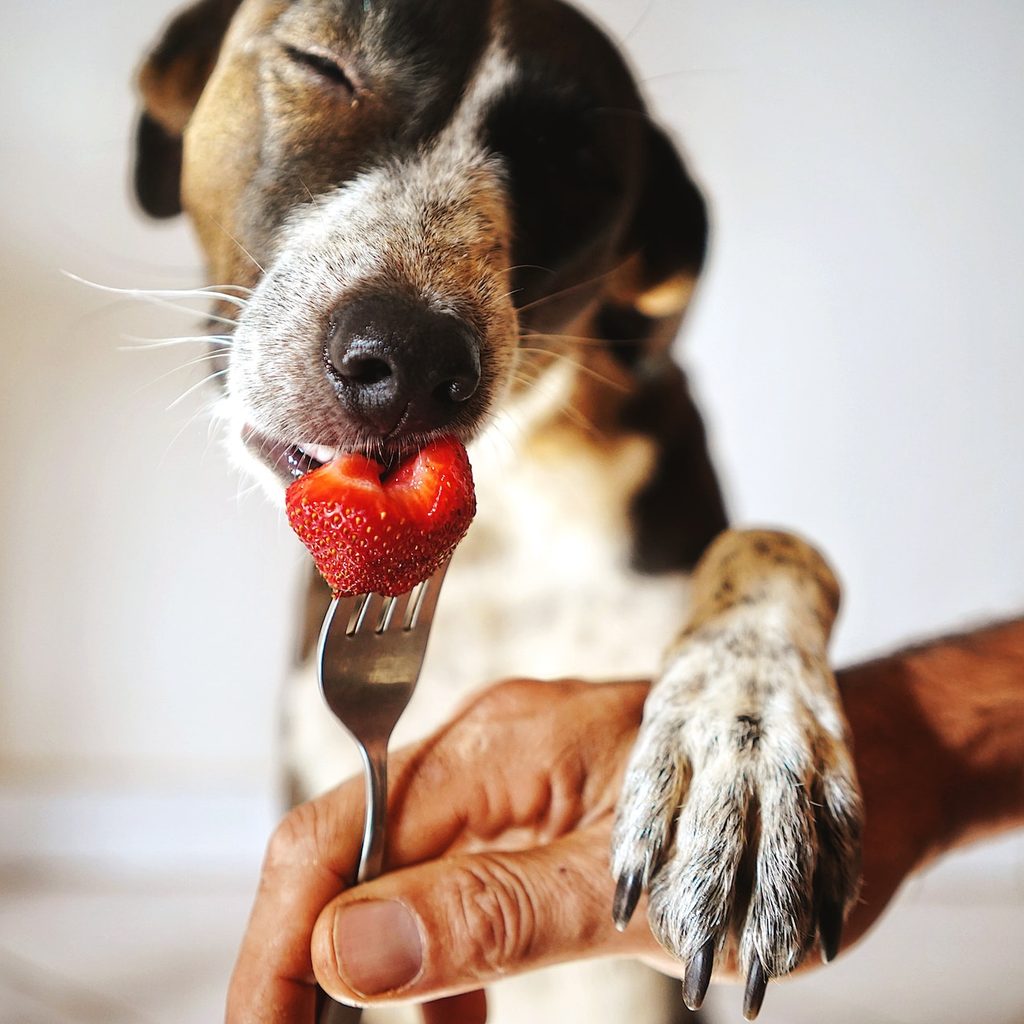
Although many fruits, including most berries, are safe for canine consumption, it’s always good to double-check. Strawberries, blueberries, blackberries, and raspberries are all harmless, healthy snack options for your fur baby, though Petco reminds readers that fruits can also be high in sugar. Berries make great ingredients in dog treats, too, so don’t hesitate to search for a recipe.
5. Cooked potatoes and sweet potatoes
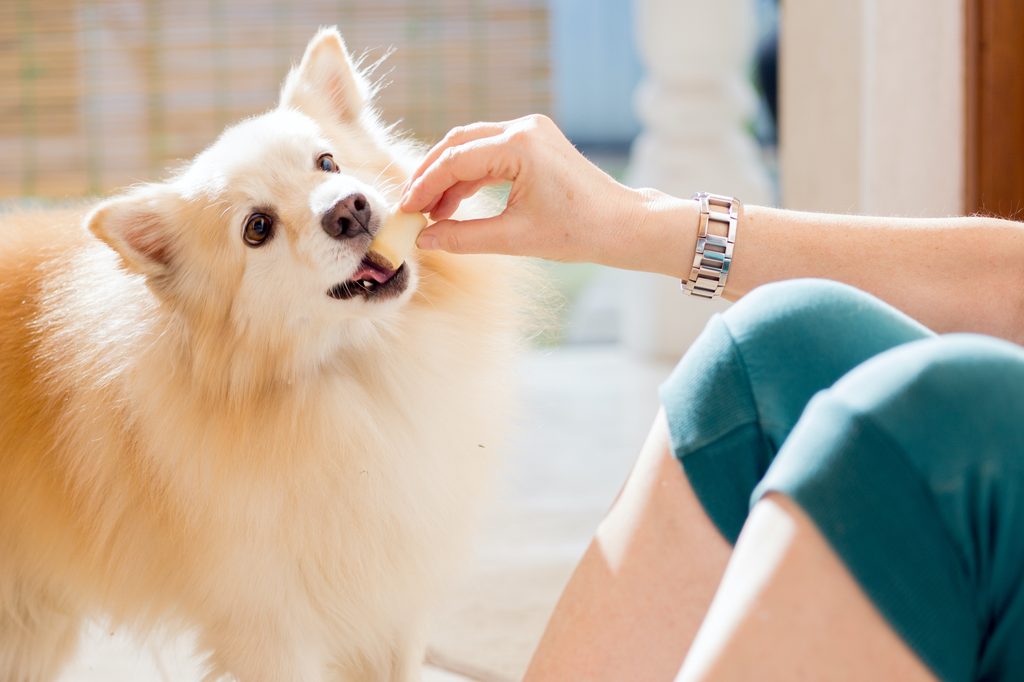
As you’re snacking away on some of your favorite starches, you’ll be happy to know you may be able to share with your best bud. Though cooked potatoes and sweet potatoes are both safe for dogs, you need to make sure not to include any additives or seasonings that can be harmful to pets. (And don’t forget that all these snacks are served best in moderation.)
6. Plain pasta and rice
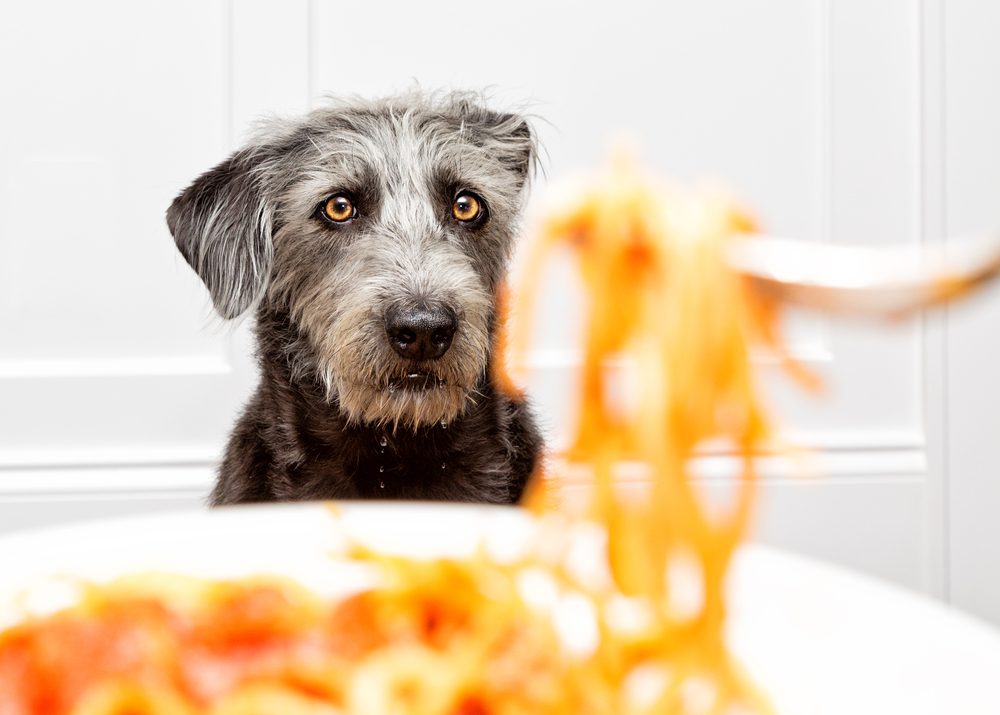
While we’re on the subject of carbs, rice and pasta are dog-friendly, too! As with other foods, these should be fed to your pup fully cooked and without any dressings or sauces. Even a bit of butter can go a long way with a dog, so set aside a portion before adding any of your favorite toppings.
7. Yogurt
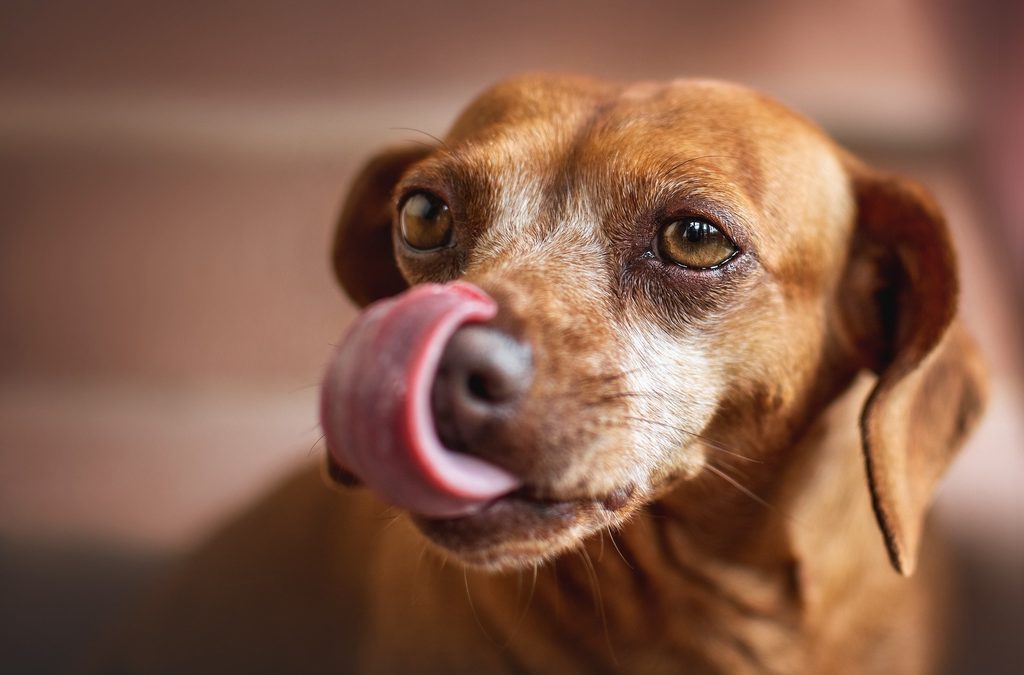
Be extra careful with the dairy as this can cause stomach upset. Yogurt and cheese are both pup-appropriate snacks, but they can be higher in fat than other foods. Most pups are not lactose intolerant, notes the AKC, so a little yogurt should be just fine. Plus, yogurt contains millions of helpful probiotics that may help your dog’s digestion.
8. Apples
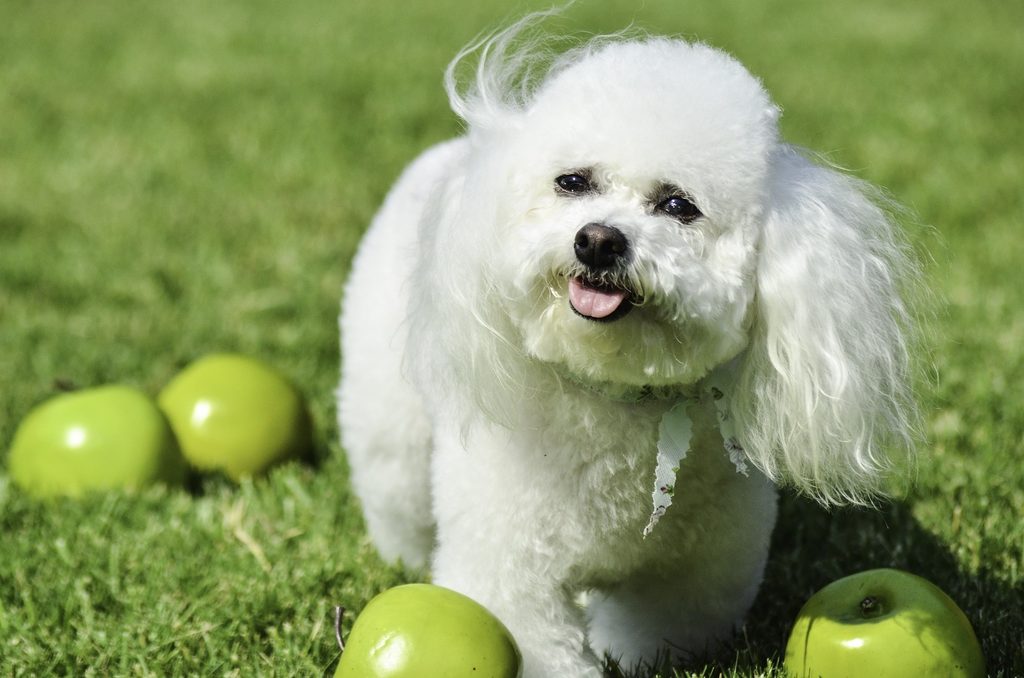
One of the most accessible fruits is also a healthy treat for dogs, so feel free to use small pieces of apple as a training reward or special treat. Since apples are high in vitamins A and C as well as low in fat and protein, they may be an even better snack for more mature dogs. Just be sure to never let your dog eat the seeds or core; they contain small amounts of cyanide that won’t harm us but can be dangerous for your dog if they consume a lot.
9. Some nut butters (peanut, almond, cashew)
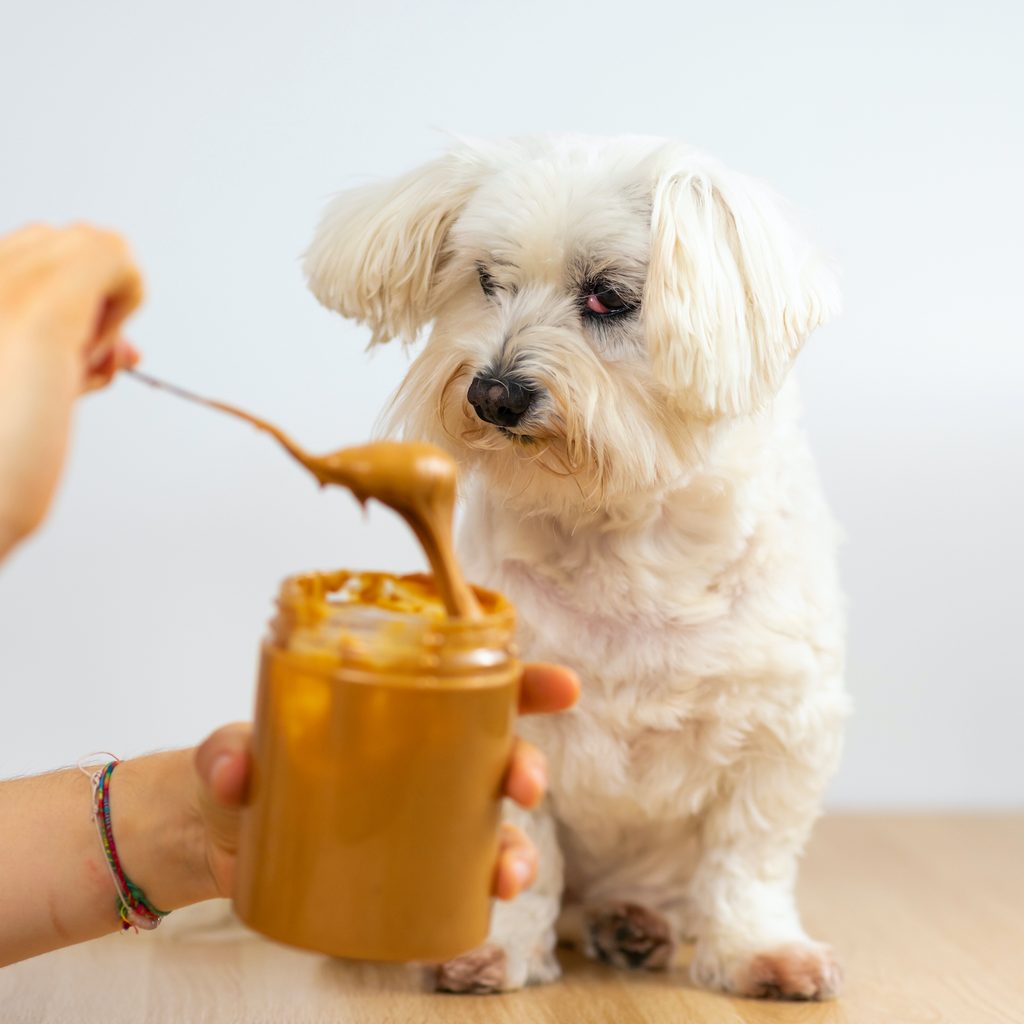
Peanut butter is another popular snack for dogs, but you need to read the label before you let your furry friend have a lick. Xylitol, an artificial sweeter that also hides under the name “birch sugar” and causes serious illness in canines, can be found in some low-sugar nut butters.
Whether you try peanut butter, cashew butter, or almond butter, this snack can also be a great way to keep your pet entertained. Some pet parents like to put nut butter into a Kong or puzzle toy to distract your buddy during alone time — or anytime, really!
10. Salmon and shrimp
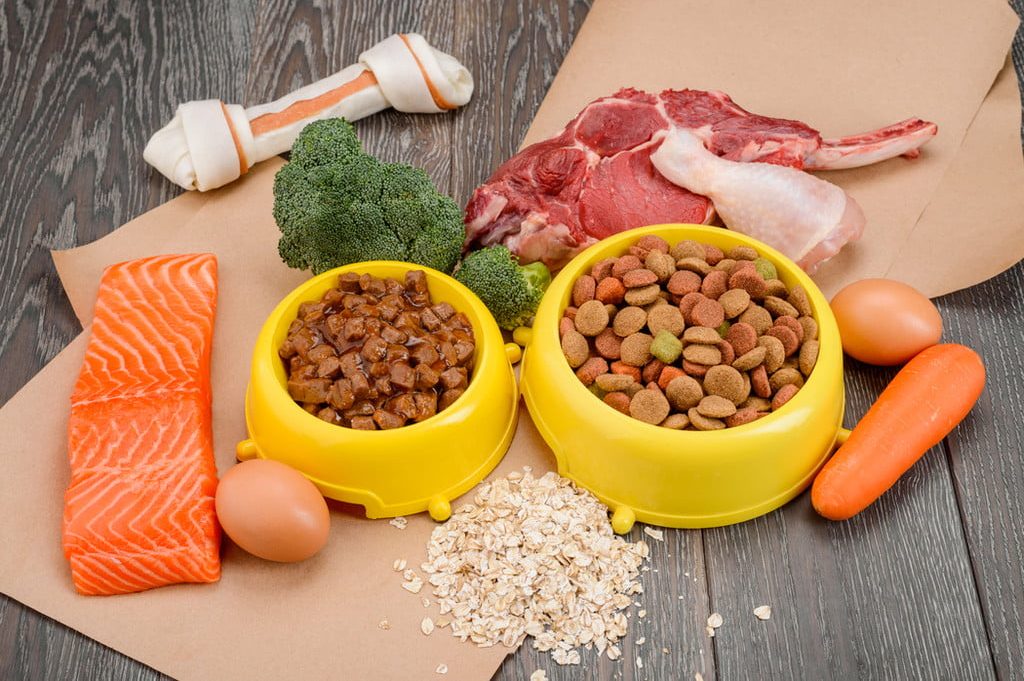
Most folks know how dogs love meat, but did you know this includes seafood too? Salmon and shrimp are two healthy seafood options that are also safe for dogs to eat, but take care when preparing these fish. Bones, skin, fat, and tails should be removed before your dog takes a bite so that they don’t choke or get too much unhealthy fat.
What human foods should you avoid?
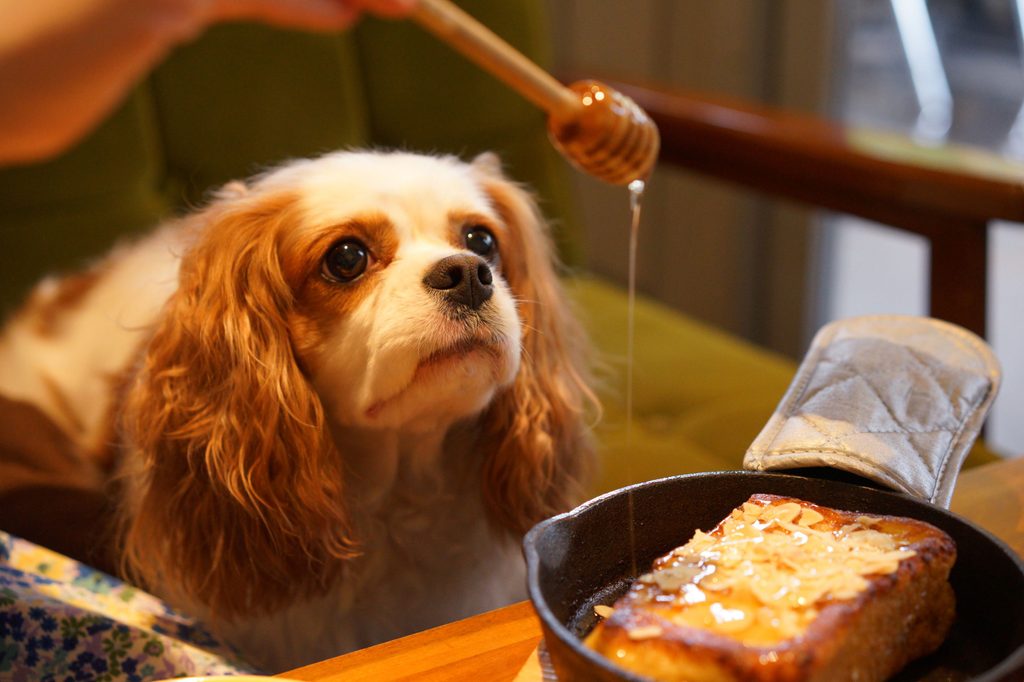
We all know that dogs can’t eat chocolate, but that’s not the full list of don’t foods — there are a few others you need to know. You also should avoid garlic, onions, grapes, spices, and sugar. While all the snacks on this list will work best in small quantities (leaving your pup pup to mostly eat his kibble), the no-list foods should be avoided at all costs.
If your animal ever does swallow a bit of any poison fare, you’ll want to reach out to your vet. They can guide you through the proper protocol, which will vary depending on what food they ingested and how much of it.
Be careful with people snacks!
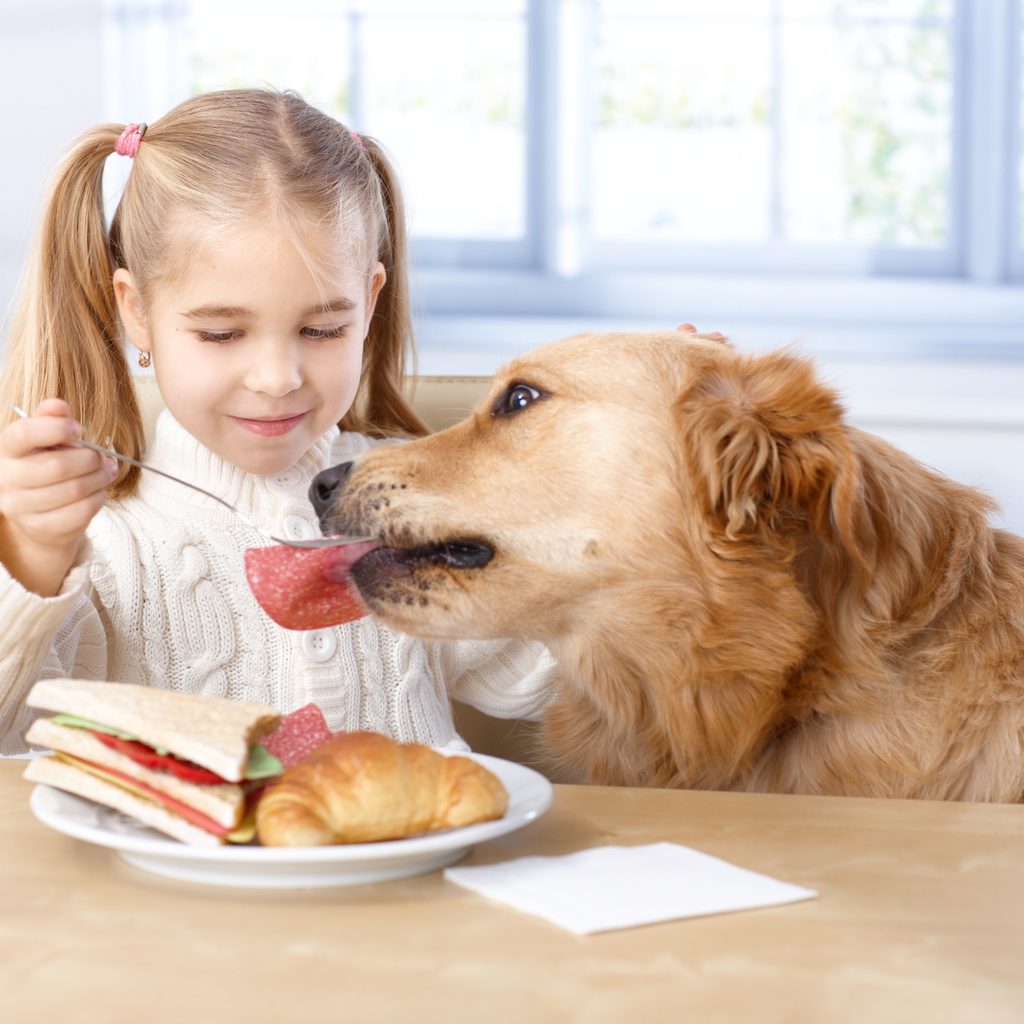
Though many human foods are not toxic for dogs, there are some that are much safer (and even healthier) than others. Make sure to do your research before sharing a bite of your meal with your furry friend, and once you find a safe, healthy snack you can both share, chow down!


